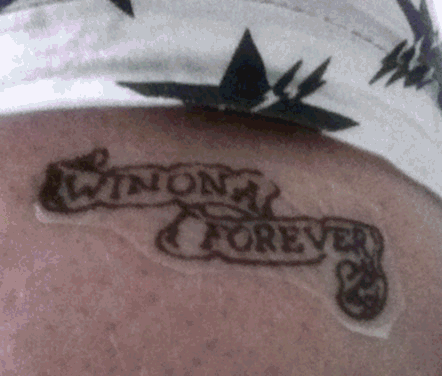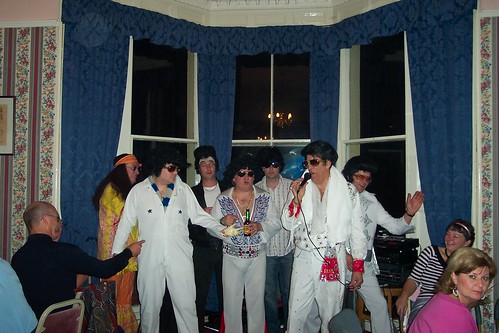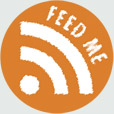I write, you know, it’s sort of the core of loads of stuff I do—writing is a founding block of good social web engagement which is where I get most of my living from. It’s also part of teaching or training in a way, you need to be able to construct narratives and find the right words. Journalism, or at least the writing of words to order for publication, is fun too. But the writing that’s most rewarding is where you get to have an idea, and then run with the bugger until it’s done.
Listening to all six hundred and ninety eight Elvis Presley songs in order in one sitting was one of those, but Dirty Bristow was sort of like that on a grand scale, and not just me writing.
When you look around there seems to be a straight choice for writers: the web and freedom (but no guaranteed audience or context) or whatever publication will have you and whatever rules they apply. Not that rules are bad: it’s not just the subject/audience/word count stuff that’s the problem, it’s the context and the pressure of it. Want to discuss South American literature and pop-culture in the same breath? You’ll be too worried that not everyone will get it, waste the word count explaining things and end up with something without the élan you wanted.
So we invented a magazine with as few rules and pressures as possible, it seems (artistically at least) to work. That sorted what’s the next challenge?
Piers.
Or to be specific, nostalgia for a lost and fictional time and piers are a good knob to hang this particular type upon.
Danny Smith, with whom I’d managed to hold out against the advice and make the magazine, said there was something in a book visiting all of the pleasure piers in Britain. He didn’t know how many there were, how long that would take, but it sounded good. I said yes, and then basically a lot of people said ‘no’. Or rather they said “don’t do it”, “I’m not coming”, “that’s stupid”, “why?” or most devastatingly of all for Dan “you’re wasting your life” (his mum).
But we’re going to do it anyway. We’ve researched a bit, and know where they are. We’ve press-ganged a driver—I say so my creative stance isn’t diluted, my friend says “so your drinking isn’t interrupted” and she’s possibly half right. But it’s more so I don’t have to worry so much.
I love new places, but find that travel can be a trial, even if arriving is a pleasure.
I get nervous: sit on a train, is it the right train? Is it working? Have I go the right ticket? What if it doesn’t stop at the right place? What if it breaks down, what if… No, I can’t relax. Not til all decisions have been taken off me—which is sort of why I can cope a lot more easily with the regimented walk/don’t walk watch-the-screens travel by air. I mean, they’re actively trying to make sure you don’t get on the wrong plane—and the consequences of a break-down are a little more final than having to spend the night on Crewe Station.
So if I don’t have to think, and the worst thing that can happen is that I die, I’m good.
I don’t have a point or an allegory for the journey, certainly not one as deeply thought out and involving the A-Team as m’colleague Mr Smith has. Nor am I thinking about group dynamics in a wider sense than I don’t really want to have a row with either of them. I’m not looking for conflict or hardship: the last thing I want is for this tale to turn into one of struggle, of dirty sleeping conditions or danger. We might find some, but I’m more interested in the ghosts of the past.
There’s something we’ve lost culturally, it’s like a love that’s gone and hurts. The empty past leaves you constantly hungry around the heart: it’s true to call it an ache but there are sharp pains too. There’ll be explosions of emptiness, like going over a humpbacked bridge too fast.
Inspirationally, for me the trip is a mirror world version of Drummond and Manning’s Bad Wisdom series. In that two differing writers travel to the unknown, testing themselves and their sanity—we’re hunting the familiar in a county that is changing faster than we can cope with. Except that instead of two independently wealthy ex-pop stars, we’re two people without two pots to rub together; having spent what little spare we had on the magazine itself.
People have been kind, we’ve had offers of support and places to kip as well as a surprisingly quick race to the (low admittedly) Crowdfunding target. Thanks everybody.
If you want to check out something similar, there’s the much smaller scale trip we did around Birmingham’s pubs Concrete and Cocktails that you can download for nowt.
More details of how to help or get involved in this madness are here: http://www.crowdfunder.co.uk/investment/pier-review-a-book-about-a-journey-to-the-outcrops-of-a-dying-culture-311
Twitter – @Pierreview
Facebook – Facebook.com/PierReview




